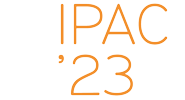Speaker
Description
In recent work, it has been shown that reinforcement learning (RL) is capable of outperforming existing methods on accelerator tuning tasks. However, RL algorithms are difficult and time-consuming to train and currently need to be retrained for every single task. This makes fast deployment in operation difficult and hinders collaborative efforts in this research area. At the same time, modern accelerators often reuse certain structures within or across facilities such as transport lines consisting of several magnets, leading to similar tuning tasks. In this contribution, we use different methods, such as domain randomization, to allow an agent trained in simulation to easily be deployed for a group of similar tasks. Preliminary results show that this training method is transferable and allows the RL agent to control the beam trajectory at similar lattice sections of two different real linear accelerators. We expect that future work in this direction will enable faster deployment of learning-based tuning routines, and lead towards the ultimate goal of autonomous operation of accelerator systems and transfer of RL methods to most accelerators.
Funding Agency
This work is supported by the Helmholtz Association (Autonomous Accelerator, ZT-I-PF-5-6) and the “Karlsruhe School of Elementary and Astroparticle Physics: Science and Technology”.
| I have read and accept the Privacy Policy Statement | Yes |
|---|
